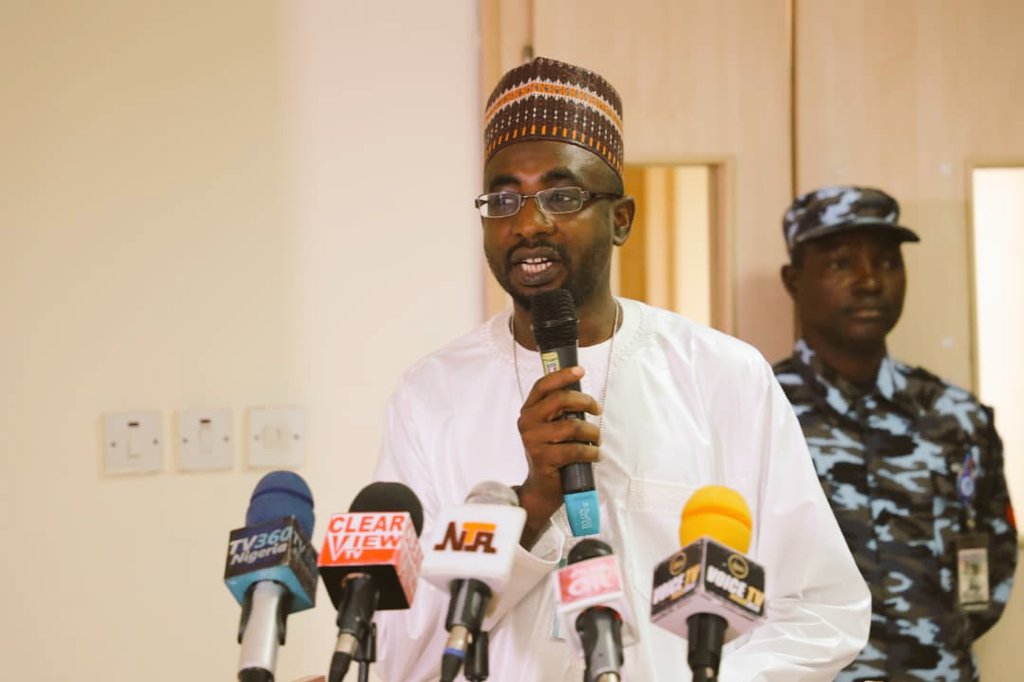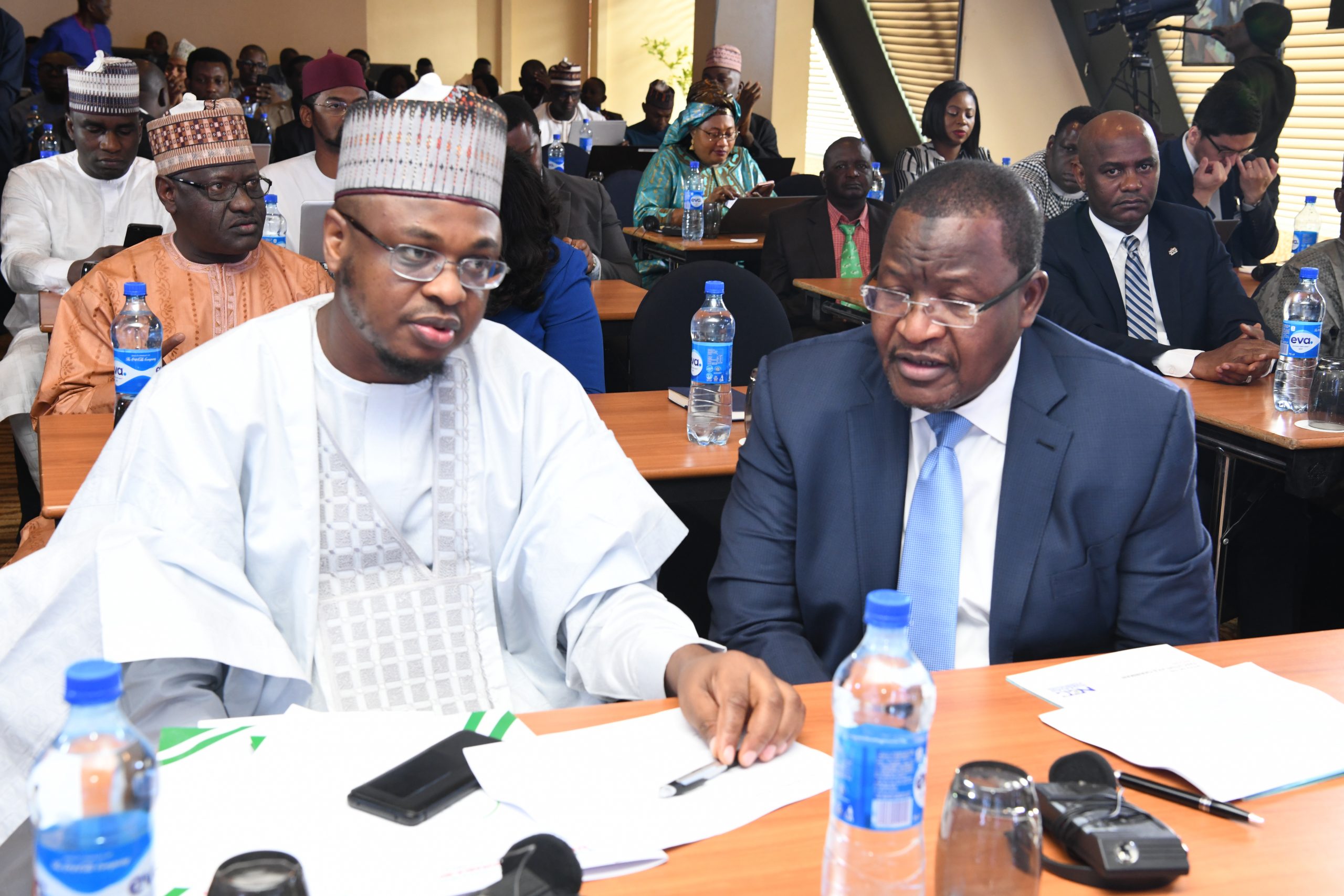By Ibrahim Muhammad
Coronavirus (COVID-19); the deadly virus hit a great number of countries. It proved to be even worse than the crucial economic, strategic, and political battles happening around the world. The coronavirus outbreak has and still is impacting all industries, including the information and communications technology industries.
With COVID-19, we are already seeing early signs of a shift in how consumers and businesses behave. Remote working is being encouraged by tech and non-tech companies alike. My humble Director-General, Mr Kashifu Inuwa Abdullahi said “Coronavirus forced us to change our behavior and adapt to new habits. New trends have emerged, we do everything remotely; working, learning, meeting, workshops, zoom party, e-wedding, and so on.” Airline profitability is getting impacted by low seat occupancy and closure of air spaces in some countries. Supply chains are getting disrupted globally. Retail stores are running out of ordinary items. Some of these changes are direct while others are indirectly impacting. Short-term responses to these crises will revert the present situation to normalcy once COVID-19 is contained. However, some of these shifts will continue, creating a long-term digital disruption that will shape businesses for decades to come. My humble Director-General, Mr Kashifu Inuwa Abdullahi CCIE, once said “In every crisis, there is a hidden opportunity, the most promising silver-lining in this crisis is accelerating trends to shape the future of the digital economy.”
World Health Organization (WHO) said: “Early cases identified in Wuhan are believed to have acquired infection from a zoonotic source as reported by many people while visiting or working in the Huanan Wholesale Seafood Market.” Still, the exact origin of the COVID-19 is uncertain. Scientists are trying hard to unearth the truth. They are determined to find the original cause of the pandemic as this is very vital in finding a lasting solution to future occurrence of such pandemic.
According to scientists, people aged over 60 years and those with underlying health conditions such as hypertension, diabetes, cardiovascular disease, chronic respiratory disease, and cancer are liable to the highest risk for severity of the disease and death.
Tech giants have suspended operations. They have canceled their participation in very important tech events and activities. Conferences and other programmes are also at a halt. Financial objectives are below expectations.
Innovation is coming together in the most inspiring ways. Researchers are working closely with policymakers and those at the NCDC, Ministry of Health, and other relevant stakeholders to roll out innovations that will mitigate the spread of the deadly virus. This would curtail any contagious disease and bring to patients Digitally-enabled consultations (e.g., video consultations, online consultations). Already some countries have adopted the use of telemedicine as routine practice for dealing with patients overnight in both acute and primary care. Guidance on how to do them well has been produced in response to the degree of need and urgency that COVID-19 presents.
On the 1st April 2020 The Director-General of NITDA, Mr Kashifu Inuwa Abdullahi CCIE, inaugurated a 10-Member Advisory Committee. This is in line with the Agency’s mandate of developing and regulating Information Technology (IT) for sustainable National Development. The committee is tasked to advise Government on measures to be taken to cushion the impact of the COVID-19 pandemic, on start-ups, small and medium businesses, and the Technology Ecosystem in Nigeria.
The MD Galaxy Backbone, Prof. M.B Abubakar discusses a solution that could help restart the Nigerian economy after the lockdown. This will help drive digital/online transactions. Social distancing will be maintained by using video conferencing facilities provided by his organization.
The number of confirmed coronavirus (COVID-19) cases in recent weeks has forced companies and Government offices to transfer their workers to operate remotely from home making use video digital conferencing for meetings.
On the 13th March 2020, a statement was released by NCC via KanoFocus newspaper which was signed by its Director, Public Affairs, Henry Nkemadu which stated that the commission is embarking on the building of six Information Communication Technology Parks, to promote socio-economic transformation in Nigeria.
The ICT parks will provide a commercial hub for ICT capacity building and digital skills. It includes Innovation Labs and Digital Fabrication Laboratories (Fablabs). This is meant for ICT innovators and entrepreneurs for the incubation of ideas. The Digital Economy Drive led by the Honourable Minister of Communications and Digital Economy, Dr. Isa Ali Pantami, will surely yield a positive result if all the initiatives by his supervisory bodies are fully utilized.
In most African countries telcos have announced new data rates to support subscribers that are working from home as the government declares lockdown.
According to the NCC’s latest industry statistics, in January 2020, MTN, Airtel, and Glo gained a combined 2.7 million internet subscribers.
It also becomes quite clear that both pandemics and recessions are good accelerators for innovation. However, there is a sharp need for a more distributed, coordinated, and trackable supply of components across multiple geographies and vendors, while maintaining economies of scale. This would require global platforms to be erected that can use sophisticated technologies such as 5G, robotics, IoT, and blockchain. This will help link multiple buyers with multiple vendors reliably across a ‘mesh’ of supply chains. The knock-on impact will necessitate the adoption of self-driving cars and delivery drones. Because the demand for eCommerce logistics will far outstrip the number of drivers needed to fulfill them.
Moreover, the smart cities project could be of help. As governments learn from the COVID-19 experience, it will shift investment in favor of smart cities. It will be critical to have all this to manage the next anticipating crises, which is inevitable. The Key players to benefit from this shift are smart governments, focused companies such as Cisco, Microsoft, Siemens, and digital city startups across the country.
It is straight forward to predict that the COVID-19 is going to be an accelerator for ICT not only in Nigeria but globally. It promotes remote working as well as online education. What is harder to figure out is what will happen once a majority of the knowledge workforce work together remotely, indefinitely. This shift will likely impact the morale, productivity and mental health of workers throughout the globe and businesses need to prepare for it. This is in line with what the NITDA said “Almost nearly everything we do is powered by digital technologies. Emerging technologies such as IoT, AI, Automation, and Robotic Technology would boost productivities, increase sales, improve efficiency, reduce cost, and keep up with the increasingly sophisticated competition.” For companies looking to add the human touch digitally to their workplace, the choices are limited today, some startups and another handful of tech companies have already swung into leveraging on the opportunities created by the COVID-19. Several mental health startups can double down on solving the problem of isolation. Business networking apps can help solve the mentoring and development challenges that come with being a remote worker.
COVID-19 has irrevocably changed the way businesses will compete over the next decade. Firms that choose to capitalize on these underlying changes will succeed and the ones that don’t will get disrupted.
Lastly to me, the total lockdown would be counterproductive. For now, a strategical plan needs to be put in place not only preaching the post-Covid plan. We must learn to live with it all around us and practice the skills of avoiding it. We cannot perfect those skills by locking ourselves up. Same as leaving around with Malaria, cater, and other diseases already accommodated.
By Muhammad Ibrahim Muhammad
(Abu Fatima)





